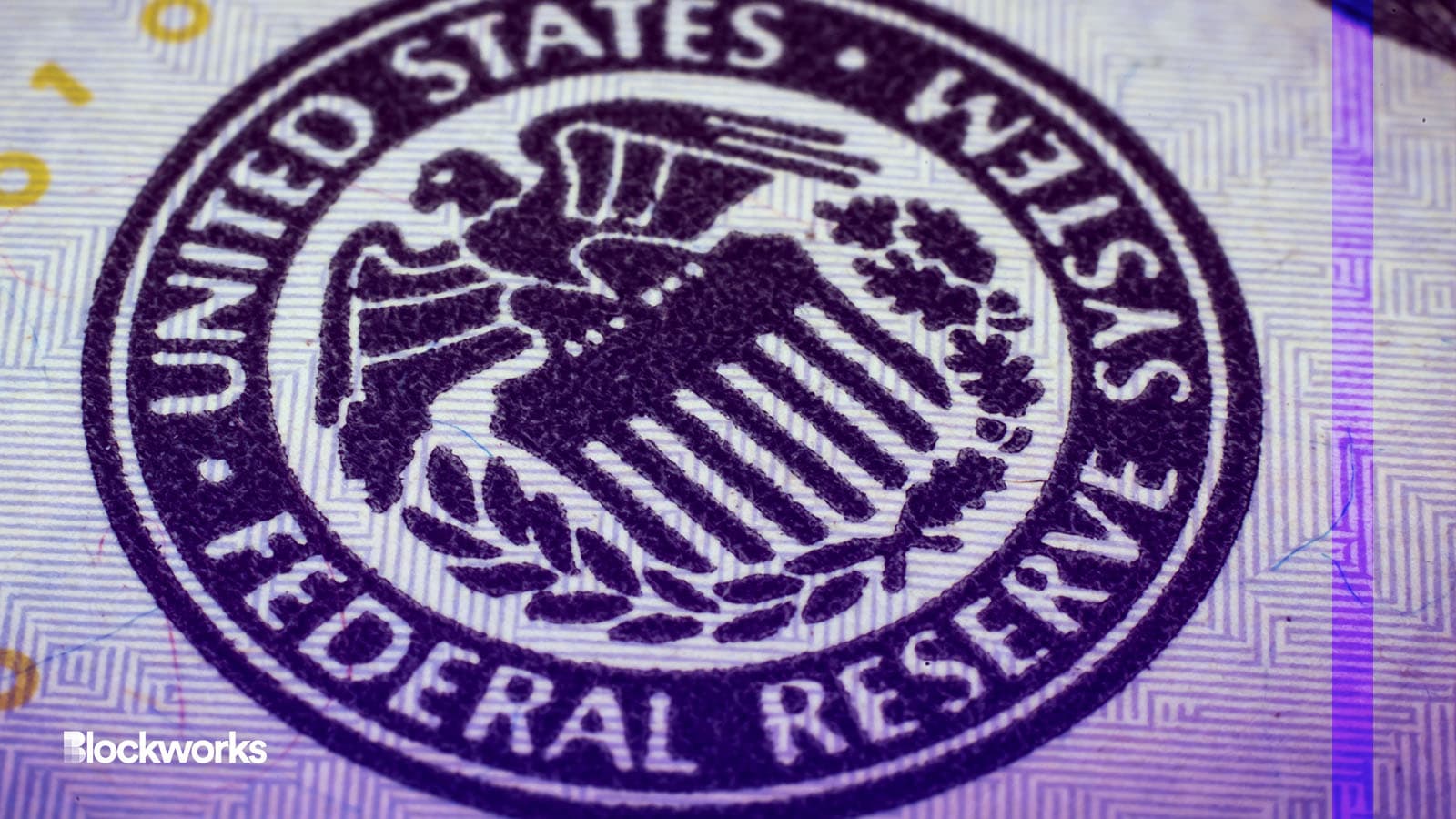The Fed: Crypto Poses ‘Key Risks’ to Banks, but Carry On
Three US financial regulators do not prohibit or discourage banks from providing crypto services to their customers, per a new statement

Triff/Shutterstock.com modified by Blockworks.
US banks appear to have the greenlight for most cryptocurrency dealings — despite a number of “key risks” the asset class poses to TradFi operators.
Banks are “neither prohibited nor discouraged” from providing digital asset financial services to their customers, according to a joint statement issued by the board of the Federal Reserve and two other government entities on Tuesday.
The Fed’s board of governors, as well as the Federal Deposit Insurance Corporation and the Office of the Comptroller of the Currency, issued a laundry list of perceived risks banks undertake when dealing with digital assets.
Referring to the “events of the past year” and the sector’s “significant volatility and the exposures of vulnerabilities,” the agencies voiced concern over risks that “cannot be mitigated or controlled” eventually carrying over to the banking system.
A number of top bulge-bracket US banks have favored a slow-and-steady approach to offering crypto investment products to clients — both institutional and retail. There have been notable exceptions, including Goldman Sachs and JPMorgan (despite misgivings of the latter’s chief executive Jamie Dimon).
Tuesday’s guidance appeared to allow such crypto efforts to continue unabated for the time being. “It is important that risks related to the crypto-asset sector that cannot be mitigated or controlled do not migrate to the banking system,” the statement said.
Regulators said they’re “careful and cautious” on any current or proposed crypto exposures banks have undertaken or are set to undertake.
“Based on the agencies’ current understanding and experience to date, the agencies believe that issuing or holding as principal crypto-assets that are issued, stored, or transferred on an open, public, and/or decentralized network, or similar system is highly likely to be inconsistent with safe and sound banking practices,” the statement said.
Still, the financial watchdogs stopped short of prohibiting, or discouraging, banks from engaging in any specific types of cryptocurrency services.
“The agencies will continue to closely monitor crypto-asset-related exposures of banking organizations,” the statement said.
Get the news in your inbox. Explore Blockworks newsletters:
- The Breakdown: Decoding crypto and the markets. Daily.
- 0xResearch: Alpha in your inbox. Think like an analyst.






